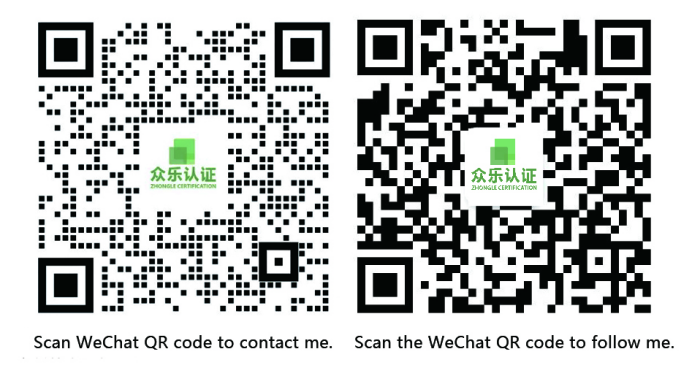1. Overview of Japan's METI 2025 filing regulations:
Japan's Ministry of Economy, Trade and Industry (METI) recently officially released the revised details of the "Electrical Products Filing System," which will take effect on December 25,2025. This revision marks a comprehensive strengthening of Japan's cross-border e-commerce regulation. Overseas sellers, especially China's e-commerce companies exporting to Japan, must quickly adapt to the new filing entities, procedures, and liability mechanisms, and systematically build compliance capabilities.
2. Core changes of the new rules: clarifying the responsible entities and covering online supervision
The core of this revision is to fully integrate cross-border e-commerce into the METI filing system, while restructuring the responsible entities and implementation pathways.
lChannel determination becomes the first step
The new regulations clearly distinguish between "online" and "offline" sales channels. For example, sales through platforms like Amazon in Japan are considered "online channels." The new regulations now explicitly require the establishment of a China administrator in Japan, primarily to ensure that the responsible person can be found at any time.
lThe entity registered for filing has become an overseas seller
In the past, METI filings were mostly completed by Japanese importers. The new rules clearly stipulate that China's cross-border e-commerce enterprises, as the filing entities, must appoint a "domestic administrator" in Japan to jointly undertake the filing and subsequent regulatory responsibilities.
lDomestic administrators become key roles
The administrator must be based in Japan and serve as the official contact between METI and the seller, ensuring prompt response to quality or safety issues, thereby strengthening the closed-loop supervision of "traceability, contact, and accountability".
3. New filing process: three steps to systematic compliance
The new rules expand what was originally a relatively simple process into three mandatory steps, increasing the complexity and time cost of operation:
(1) Self-application fee (the client has a domestic manager)
a. Registration fee for GBiz ID: Only once per year for the same company and the same person in charge
b. Japan domestic administrator registration fee: required for each product and annually
c. METI registration fee: required for each product and annually
(2) Agency service fee (domestic manager using the agency service provider)
a. GBiZ-id registration fee (including domestic agent fees)
b. Step costs remain unchanged
Cost changes:
Japan's METI filing regulations have significantly raised compliance thresholds and operational complexity by introducing two mandatory steps:' GBiz-ID registration 'as the first phase and' domestic administrator qualification registration' as the second.
4.Risk analysis for selecting a proxy service provider
Although it seems convenient to use domestic managers provided by proxy service providers, there are also risks that cannot be ignored.
lInformation asymmetry risk
The agency service provider has limited understanding of the customer's products and company situation. Once the Japanese relevant departments conduct spot checks or telephone confirmation, the agency service provider may not be able to reply to the inquiry accurately and timely, resulting in the registration being blocked.
lAmbiguity in responsibility
When a third party unfamiliar with the customer's business is used as the domestic manager, the responsibility definition may become complicated when there is a product quality or safety problem, which affects the efficient solution of the problem When a third party unfamiliar with the customer's business is used as the domestic manager, the responsibility definition may become complicated when there is a product quality or safety problem, which affects the efficient solution of the problem
lCompliance and consistency risk
As the agent service provider serves multiple customers at the same time, it may not be able to provide sufficient service guarantee for each customer under the condition of limited resources, which affects the long-term stability of the filing.
5. Critical Convergence Requirements: The PSE certificate must match the METI filing information.
The new regulations further strengthen the alignment between PSE compliance declarations and METI filings.
1) The PSE certificate applicant must be consistent with the METI filing entity, that is, the name of the China e-commerce company;
2) When applying for PSE certification, clearly specify the actual sales channels (online/offline) to ensure the correct METI filing path.
3) All information must be consistent: the PSE certificate, METI filing details, and actual sales channels must match. Any discrepancy will result in immediate filing failure.
6. Transition Period Arrangements and Timeline: Seize the Last Compliance Window
1) December 25,2025: The new rules will take effect;
2) Products that have been filed before: it is recommended to complete the listing as soon as possible. The products that have been listed are not bound by the new rules for the time being;
3) New products on the shelves on December 25: they must be re-registered in strict accordance with the new process.
7.Compliance Impact and Significance
This revision not only raises the compliance threshold, but also restructures the logic of responsibility for cross-border e-commerce in the Japanese market:
Platform supervision obligation is strengthened: e-commerce platforms are responsible for handling unregistered goods, and serious violations may lead to the withdrawal of stores;
Improvement of information transparency: the filing information will be partially disclosed to enhance consumer supervision and market regulation;
The industry is moving towards standardized competition: non-compliant products and sellers will be phased out, freeing up market space for compliant enterprises.
Japan's new METI filing regulations mark a pivotal shift for cross-border e-commerce from unregulated expansion to standardized development. Facing increasingly complex procedures, higher costs, and stricter accountability requirements, sellers should proactively establish a comprehensive compliance framework encompassing PSE certification, domestic administrator designation, and METI registration.
For detailed guidance on the new regulations, filing support, or compliance solutions in Japan, please contact Zhongle Certification at any time to help you steadily expand your presence in the Japanese market.
Make compliance a stable cornerstone for your overseas expansion into Japan.
Tel: 13417442373(Wechat)
E-mail: finny.zhou@zhongletest.com
Teams:nancy.le@zhongletest.com




